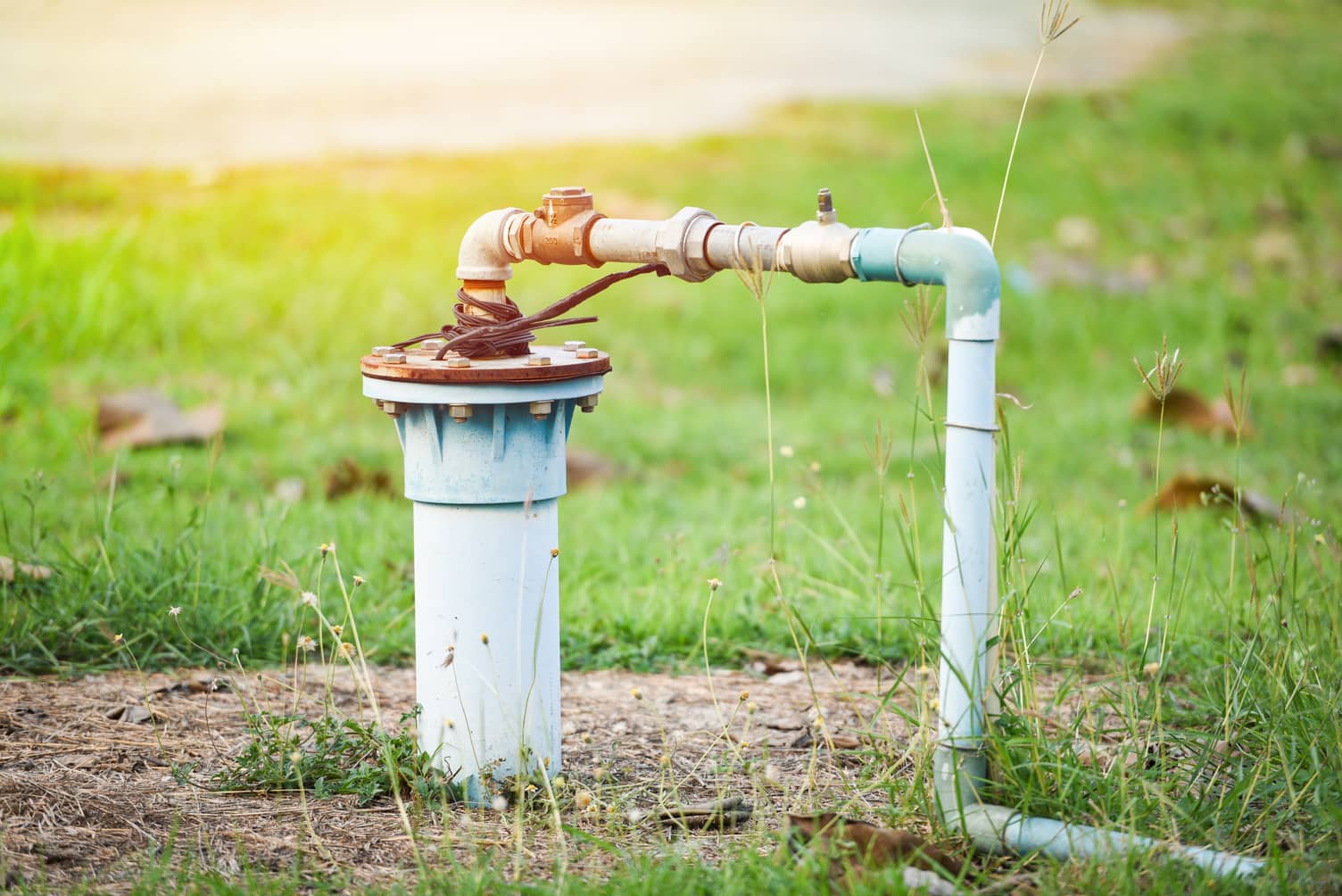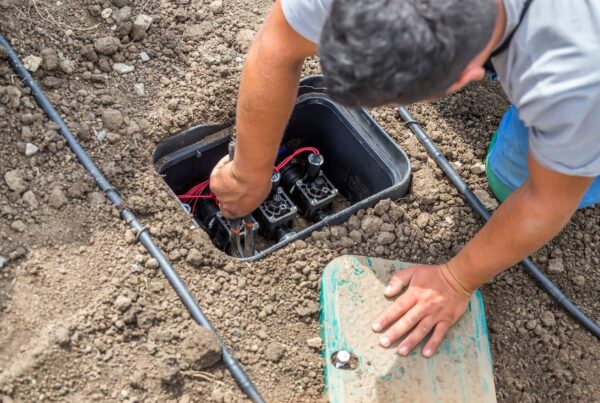
Wondering about the source of that well water you’ve been relying on? Many homeowners are in the same boat as you, thirsting for answers. In this post, we’ll delve into the depths of groundwater and wells, shedding light on their origins and how to preserve them. Alongside, you’ll find a fascinating insight into fluoride – its presence in well water, health benefits, and optimal levels. Does well water have fluoride? Yes, rainwater goes into the soil and picks up the minerals so the fluoride is naturally occurring.
Let’s dive right in and find out more, shall we?

Where Does Well Water Come From?
Well water isn’t picked up from the supermarket aisle or yanked out of thin air. It originates from ‘groundwater’, which is simply rainwater that has seeped underground. This water moves through soil layers, filling spaces between rocks, and creating a vast, unseen reservoir beneath the earth’s surface. A conduit to this groundwater reserve is created when a well is dug or drilled.
Protecting Groundwater and Well Water
Preserving groundwater isn’t rocket science; it involves protecting it from sources of contamination. Steer clear of using harmful pesticides and fertilizers near the well. Regular testing of well water, especially post-heavy rains or after any major landscaping activity, is also crucial.
What is Fluoride?
Fluoride is a naturally occurring mineral often associated with dental health, and rightly so. It strengthens tooth enamel, warding off cavities and tooth decay. But did you know that fluoride enters your well water naturally?
Does Well Water Have Fluoride?
Mother Nature is generous. When rainwater trickles down through the soil, it picks up various minerals, including fluoride. So yes, your well water does contain natural fluoride but the exact levels can fluctuate based on geographical location and depth of the well.
Health Benefits of Fluoride
Fluoride has a glittering resume when it comes to health benefits. It’s a powerhouse that defends against tooth decay, enhances bone health, and aids in properly functioning nerves and muscles.
What Level of Fluoride Should be in My Well?
The Centers for Disease Control and Prevention (CDC) recommends an optimal fluoride concentration of 0.7 milligrams per liter (mg/L) in drinking water. Staying within these confines ensures both dental health and overall wellness.
How Do I Know the Fluoride Levels?
You don’t need a lab coat or goggles to evaluate fluoride levels in your well water. Simply get hold of a home water test kit and follow the instructions. If the DIY route seems overwhelming, consider hiring a professional water testing service.
Too Much Fluoride – An Overflowing Problem
High fluoride levels, while rare, can lead to conditions like fluorosis, which affects teeth and bones. If you discover elevated levels in your well water, look into installing a water treatment system that specifically removes excess fluoride.
When to Test Your Well Water?
Being proactive pays here. Test your well water annually for basic parameters including fluoride. However, if you notice changes in taste, color, or odor, consider testing immediately.
Maintenance of the Well and Water
Routine maintenance of your well isn’t just about ensuring water quality—it’s also about prolonging the well’s lifespan. Keep the area around your well clean, free of debris and waste. Regularly check for cracks or leaks in the well cap to prevent contamination.
Check out the video below about why water with fluoride is important.
Other Recommended Maintenance
Now that you know about fluoride in well water, let’s take a look at a few other areas of recommended maintenance. One of those is what to do when you have brown well water. Well, you will want to have a water test done, inspect the pipes, and add a water softener, or an iron filter.
Another is, sometimes we have water intrusion in the home, no matter how careful we are. This is when water has access to a home or structure and causes damage. It happens when pipes break, roof leaks or sprinkler system sprays into the home. It can then lead to mold and structural issues.
Lastly, it is a good idea to know how long a well lasts. They can last for decades with the proper care but also depend on the quality of the aquifer or the depth of the well.
When to Call a Professional
Despite your best efforts, challenges may arise that require professional help. Notice a sudden drop in water yield? Tasting something off in the water? It’s likely time to contact a professional company to inspect your well.
Conclusion
As you journey as a homeowner, understanding and maintaining your well-water system is crucial. From knowing about fluoride levels to safeguarding groundwater, every step is pivotal in ensuring safe and healthy water for you and your family. Call on the Bentley Home Inspection team for a well inspection in East Tennessee, and surrounding areas.




